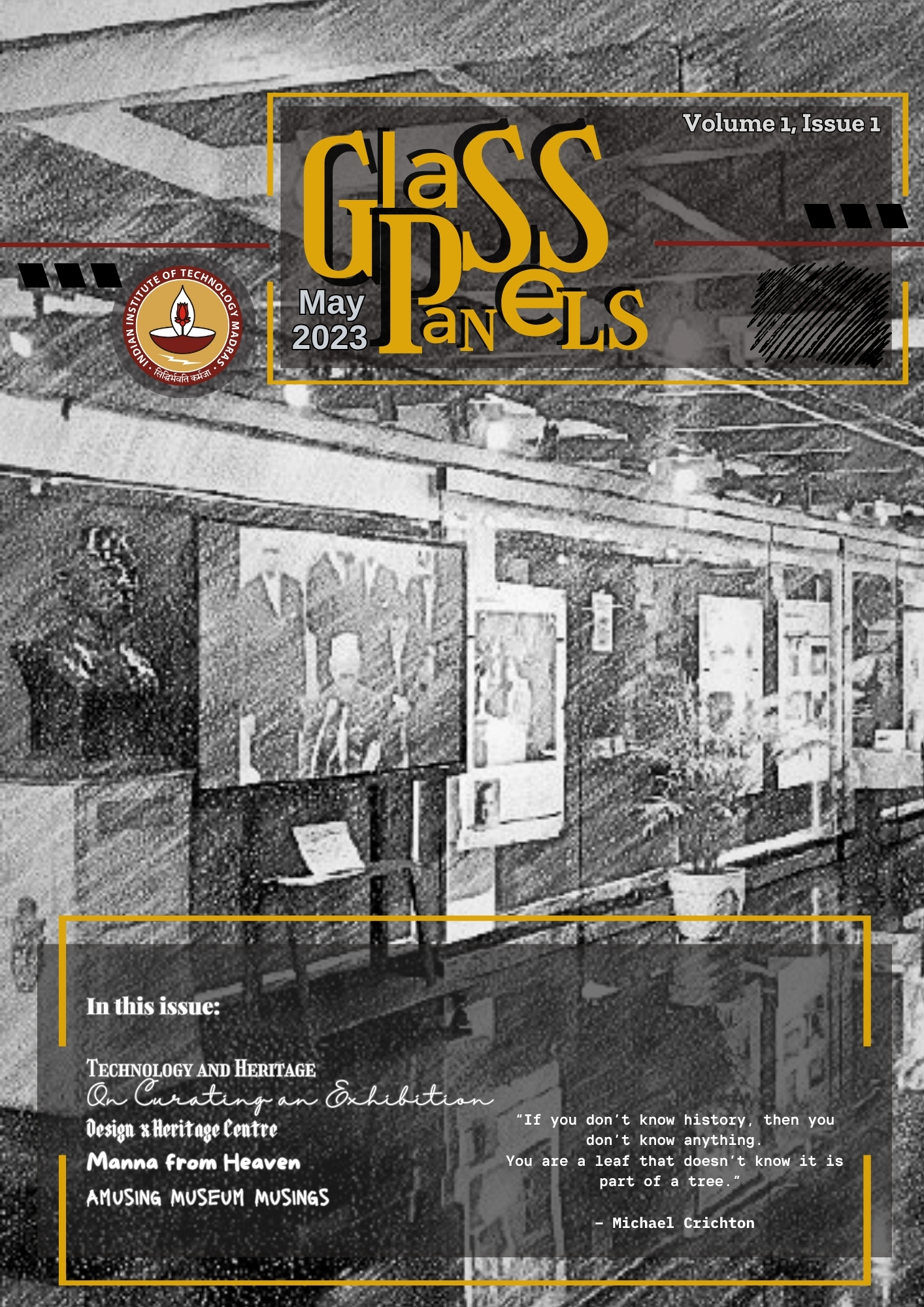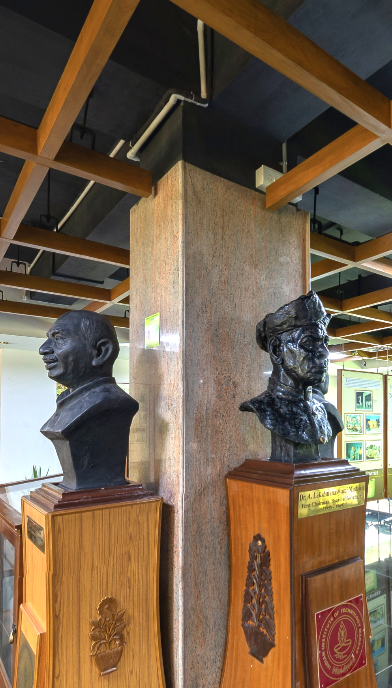-

Glass Panels May 2023
Glass Panels – May 2023
The inaugural issue of the Heritage Centre magazine introduces readers to IIT Madras’s heritage through technology, design, and nature. Highlights include “Technology and Heritage,” reflections on design at the Centre, “Manna from Heaven” on natural history, and a feature on curating exhibitions of Institute Days. It also includes puzzles, cartoons, visitor highlights, and news bites — setting the tone for a magazine that blends heritage, creativity, and community voices.Meta Description
Glass Panels May 2023: launch issue with heritage, design, exhibitions, natural history & campus culture.
Keywords/Tags
IIT Madras, Heritage Centre, Glass Panels magazine, May 2023 issue, Technology and Heritage, Design at Heritage Centre, Manna from Heaven, Hornet nest IITM, Curating exhibitions, Institute Day IITM, Campus heritage, Institutional history, Alumni stories, Museum musings, Crossword puzzle IITM, Distinguished visitors, Campus culture IITM
May 01, 2023
Life Between the Lines: A Conversation with Mr. C. V. Saha, Second Batch Alumnus of IIT Madras
- Contribute
to the Centre -
Monetary
Support - Digital
Material









